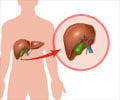Chinese scientists have suggested that genetically engineered organs from pigs could one day be used for human transplantation.

At the core of their work, they showed that altering or overexpressing the human programmed death ligand-1 (PD-L1) molecule in the endothelial cells of pig arteries reduces the conditions that lead to rejection.
This strongly suggests that humans could receive altered porcine organs with fewer complications.Genetically engineered pigs may someday overcome the severe donor organ shortage, and save human lives," said Qing Ding, Ph.D., co-study author from the Shanghai Institute of Immunology at the Shanghai Jiaotong University School of Medicine in Shanghai, China.
To make the discovery, scientists conducted experiments using two groups of pig vascular endothelial cells.
The first group was genetically engineered to express human PD-L1, while the second group was normal.
When both sets of cells were exposed to human lymphocytes, lower rejection response occurred in the group with the altered gene, while higher rejection responses were seen in the normal cells.
Advertisement
Using this type of genetic engineering technique could potentially overcome current challenges related to successful pig/human transplant rejection.
Advertisement
Source-ANI









